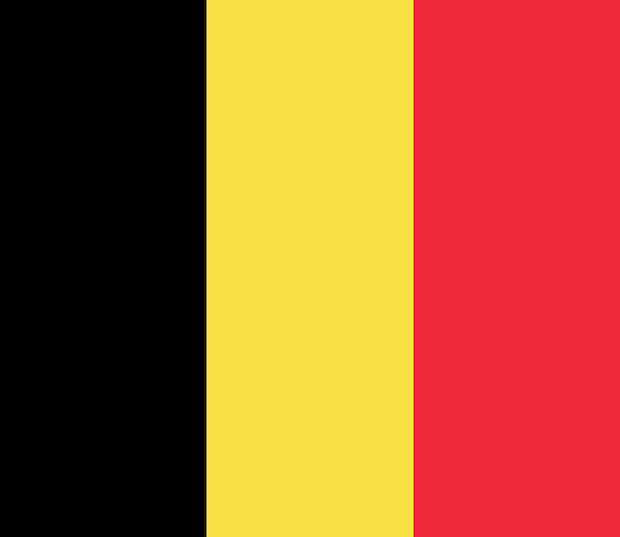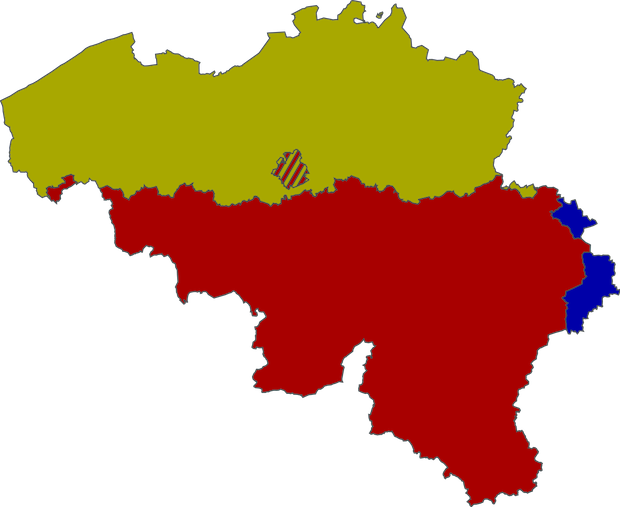Of all the people of Gaul, the Belgians are the bravest.
"De tous les peuples de la Gaule, les Belges sont les plus braves"
– Jules César (Julius Cesar)
After les attentats hier matin (the attacks yesterday morning), all our hearts are with la Belgique (Belgium). La capitale (the capital) is known as le Coeur de l’Europe (the heart of Europe), with many of the most important parts of l’Union européenne (the European Union) finding their home in Bruxelles (Brussels).

Drapeau de la Belgique (Belgian Flag)
La Belgique is also an important part of la francophonie and contributes many of the most famous chanteurs (singers) like Jacques Brel and Stromae.
However, not all of le pays (the country) speaks French, and that can lead to some confusion as to what language you should speak en Belgique.
The country is split between les Flamands et les Wallons (the Flemish and the Walloons). Les Flamands speak Dutch and live in the Northern half of the country while les Wallons speak French and live in the Southern half. There is also a small part of la Belgique that speaks German!
En fait (in fact), le pays is officially trilingual and le français, le néerlandais et l’allemand (French, Dutch, and German) are all official languages!

Languages of Belgium by Vascer, Knorck — CC BY-SA 3.0.
Gold: Flemish Community (Dutch language) Red: French Community Blue: German-speaking Community
Pourquoi parle-t-on français en Belgique alors ?
Then why do they speak French in Belgium?
La Belgique entered written history in the year -57BC with the Roman conquest of Gaul by Jules César. Les Romains (the Romans) divided Gaul into different provinces, including Gallia Belgica, an area in Northeastern Gaul populated by the Belgae, which is where la Belgique gets its name.
Les Romains brought their language and culture, which had a huge impact on the history of le pays, and led to une partie de la Belgique (a part of Belgium) speaking French today.
Mais les Flamands ne parlent pas français ?
But the the Flemish do not speak French?
After the fall of l’empire romain (the Roman Empire) la Belgique passed between many different kingdoms and empires falling under the influence of both their French neighbours in the West and their Germanic neighbours in the East.
It wasn’t until 1830 that la Belgique gained independence after passing under French and Dutch control a few more times. All that had a lasting impact and gave la Belgique the trilingual status that it has today.
En plus de cela (on top of that), Bruxelles is a French speaking city, but is located in the Dutch speaking part of le pays!
While there are often many fun things to say about les Belges (Belgians), they are an important part of la francophonie, l’Europe et le monde (the francophonie, Europe, and the world). Les atentats have everyone looking at la Belgique, and it’s a good moment to learn more about ce pays formidable (this wonderful country).
Blog submitted by: David at The French Property Network - Cle France.
This blog was originally posted on The French Language Blog pages.